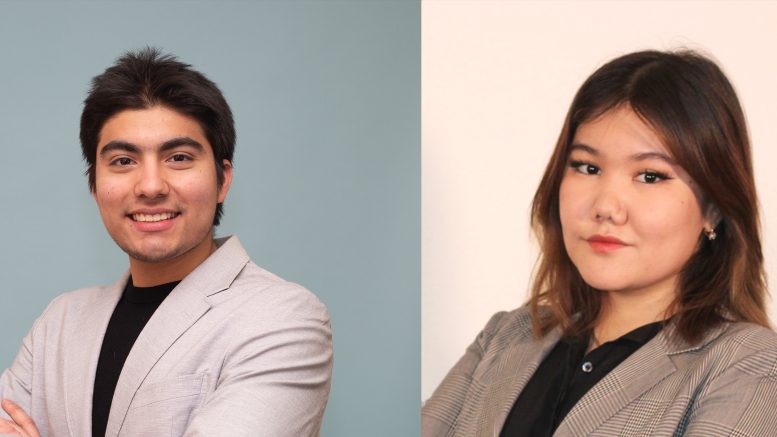The federal government is capping permits for international students for two years as part of an effort to combat “bad actors” in the post-secondary sector, Minister of Immigration, Refugees and Citizenship Marc Miller announced last Monday.
Undergraduate study permits will be reduced by 35 per cent from last year, with around 360,000 to be distributed among the provinces and territories according to population, with the most significant decreases planned for provinces with the “most unsustainable growth” in international student population, according to the government.
In his announcement, Miller stated that some provinces would see about a 50 per cent reduction in permits. Ottawa will re-evaluate the number of permits available for 2025 at the end of this year.
Julie Lafortune, spokesperson for Immigration, Refugees and Citizenship Canada stated that, while matching permit allocations “with a province’s per capita share of the population is the prime consideration,” other factors are being discussed with provinces and territories.
Provinces and territories will be tasked with deciding how to distribute permits among post-secondary institutions.
Wab Kinew said at a press conference in Neepawa last Monday that he is awaiting details from Ottawa, but that the policy could put “upward pressure” on tuition rates in the province.
The Manitoba government is in early-stage discussions with the federal government and is seeking clarity on Manitoba-specific allocations,” Orinthia Babb, a spokesperson for Minister of Advanced Education and Training Renée Cable, said in an email to the Manitoban.
Lafortune said the department “can’t comment on the finances of educational institutions,” but stated it is “working with the provinces to ensure the best outcomes.”
She said the cap is necessary as the “growth in the number of temporary residents in Canada has become unsustainable,” but Ivan Nunez Gamez, a U of M international student from Honduras and co-president of the university’s Racial Equity and Inclusion Alliance, argued that provinces like Manitoba “need those skilled workers.”
“Now they’re being forced to reduce the amount of skilled workers they’re going to potentially have, and create very niche and very specific areas, creating greater competition for immigration,” he said.
Some Canadians are concerned about the impact international students may have on the housing market.
A September Environics poll found that 44 per cent of the 2,000 polled, Canadians feel there is too much immigration in Canada, up from 27 per cent of those surveyed in 2022, and a Leger poll from November found that 75 per cent of respondents think immigrants are contributing to the housing crisis.
Following Miller’s announcement, Housing Minister Sean Fraser told reporters that though constructing new houses is his priority, the cap will reduce “pressure” on regions with a high quantity of international students.
Fraser told reporters that he had considered similar measures while he was immigration minister, but held off to give the provinces a chance to regulate the matter themselves.
However, some experts say it is not so simple. Professor of economic analysis and policy with the Rotman School of Management William C. Strange has argued that that any population increase causes housing prices to rise.
Miller said the cap is intended to address the issue of small private colleges bringing in large numbers of international students and charging high tuition while under-funding campus resources.
Tomiris Kaliyeva, an international student from Kazakhstan and president of the University of Winnipeg Students’ Association, said while she agrees that these schools are a problem, she doesn’t agree that this is the solution.
“If it was the solution, then it should have been accompanied by other policies, once again, to protect international students from financial burdens, from xenophobia and racism, that we will definitely see right now,” she said.
Lafortune said that international students “are not responsible for the shortage of housing,” but said the growing number of new students “adds significant demand for housing and other services.”
Nunez Gamez said his “main concern” with the government’s decision to cap international students was the “potential rise in xenophobia” it could cause.
“I think we already live in a very divided country, and a lot of it is being weighed on immigrants,” Nunez Gamez said.
The post-graduate work program will also see changes, with international students no longer eligible if they are enrolled in a program that uses a curriculum licensing arrangement, in which a private college is permitted to teach the curriculum of a public school.
Those completing graduate programs such as a master’s will be eligible for a three year work permit in the near future.
Nunez Gamez said that those pursuing undergraduate degrees should not be considered any less valuable.
“In fact, we need to understand that an undergraduate degree opens the door to get a master’s, opens the door to get a doctoral degree,” he said.
Work permits will also be open to international master’s and doctoral students’ spouses, but not to the spouses of undergraduate and college programs.
Lindsay Larios, an assistant professor of social work at U of M specializing in citizenship and immigration in Canada and its intersections with family politics, worries that the limit on work permits for spouses would “lead to a lot of family separation.”
Larios argued the federal government is limiting the number of permits “because that’s a jurisdiction that they do have control over.”
“It’s something that they can act on without having to go through provinces or work with provinces,” she said.


